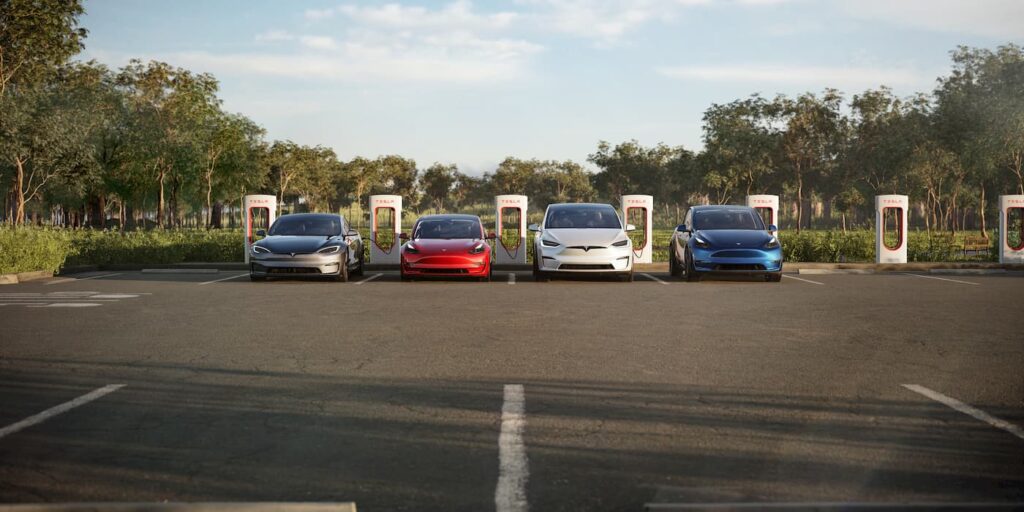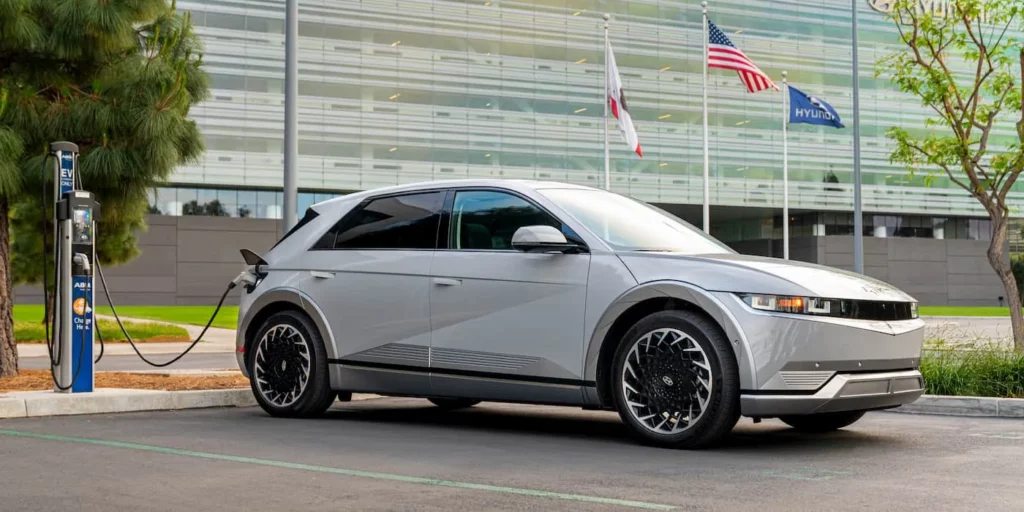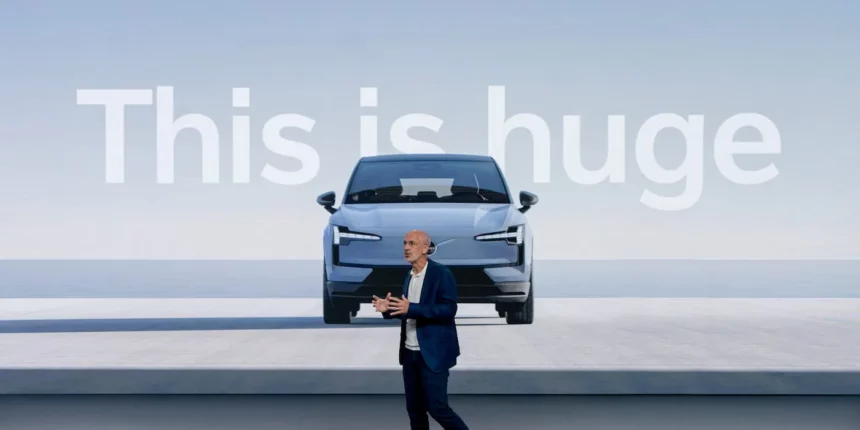Electric vehicle (EV) sales in the US experienced a significant surge, exceeding 300,000 units for the first time in the third quarter of the year. This marks a nearly 50% increase compared to the previous year. As the electric vehicle market expands, Tesla’s market share is showing signs of slipping, dropping to 50% in the third quarter.

Notable growth in EV sales was observed from automakers like Volvo, Nissan, Mercedes-Benz, and Hyundai, with sales increasing by over 200%. The growth is attributed to the introduction of new electric models, improved inventory, increased availability, and lower prices. Over the past year, 14 new EVs have been introduced, contributing to the overall market growth. EV prices have also decreased by an average of 22% over the last year, with Tesla leading the way with a 25% reduction in prices. Tesla’s Model 3, for instance, saw its starting price reach a record low of $38,880.
Tesla remains a dominant force in the EV market, delivering over 435,000 vehicles in the third quarter. However, its market share has decreased from 62% in the first quarter to 50% in the third quarter. Despite this decline, Tesla’s market presence remains substantial.
| Q3 2023 sales | Q3 2022 | YOY | Q3 Market Share | |
| Audi | 7,538 | 3,891 | 93.7% | 2.4% |
| BMW | 13,079 | 4,365 | 199.6% | 4.2% |
| BrightDrop | 35 | – | 0% | 0% |
| Cadillac | 3,018 | 36 | 0% | 1% |
| Chevrolet | 15,872 | 14,709 | 7.9% | 5.1% |
| Ford | 20,962 | 18,257 | 14.8% | 6.7% |
| Genesis | 1,802 | 888 | 102.9% | 0.6% |
| GMC | 1,167 | 411 | 183.9% | 0.4% |
| Fisker | 997 | – | 0% | 0.3% |
| Hyundai | 19,630 | 5,824 | 237.1% | 6.3% |
| Jaguar | 86 | 22 | 290.9% | 0% |
| Kia | 9,325 | 5,583 | 67% | 3% |
| Lexus | 1,394 | – | 0% | 0.4% |
| Lucid | 1,618 | 654 | 147.4% | 0.5% |
| Mazda | 34 | 8 | 325% | 0% |
| Mercedes | 10,423 | 2,717 | 283.6% | 3.3% |
| Mini | 516 | 1,105 | -53.3% | 0.2% |
| Nissan | 6,074 | 1,276 | 376% | 1.9% |
| Polestar | 3,710 | 2,852 | 30.1% | 1.2% |
| Porsche | 2,050 | 1,325 | 54.7% | 0.7% |
| Rivian | 15,564 | 6,884 | 126.1% | 5% |
| Subaru | 2,791 | – | 0% | 0.9% |
| Tesla | 156,621 | 131,024 | 19.5% | 50% |
| Toyota | 2,827 | – | 0% | 0.9% |
| VinFast | 1,159 | – | 0% | 0.4% |
| Volvo | 4,087 | 542 | 654.1% | 1.3% |
| Volkswagen | 10,707 | 6,657 | 60-.8% | 3.4% |
Rivian, a growing player in the EV market, delivered 15,564 electric vehicles in the quarter, representing a 126% increase compared to the previous year. General Motors (GM) started delivering the Chevy Silverado EV, albeit with only 18 units delivered, and Ford anticipates an uptick in production of the F-150 Lightning by the end of the year.
Hyundai is experiencing a surge in sales of its dedicated EV models, with a 237% increase compared to the previous year. The South Korean automaker set a record by selling 11,665 IONIQ 5 electric SUVs in the quarter. Volvo also posted significant growth in the EV segment, with sales increasing by 650% compared to the previous year. The Swedish automaker expects this trend to continue with the introduction of new models, including the EX30 and EX90.

Several German luxury automakers, including BMW, Audi, and Mercedes-Benz, witnessed robust sales growth, with BMW’s EV sales increasing nearly 200% and Audi’s up 94%.
In contrast, Toyota, GMC, Subaru, and Lexus lagged behind with less than a 2% share of EV sales. Meanwhile, overseas automakers are making their presence known in the US market, with Mercedes-Benz experiencing a 284% increase in EV sales, reaching 10,423 units in the third quarter. Mercedes’s EV sales accounted for nearly 15% of its total sales in the US, surpassing GM and Ford, which hover around 3% to 4% of total sales.








